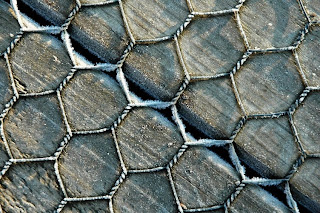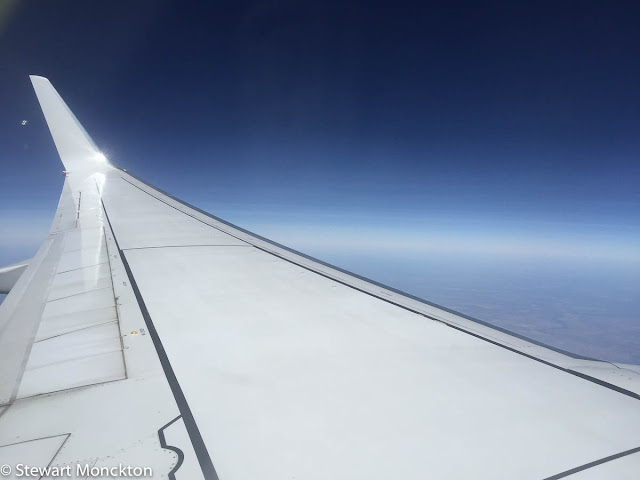Dawn and dusk
 I could tell it was going to be cold. The roof window was shining pale in the early dawn light, the last of the stars were still there. Early and cold. There was a visitor in bed, a refugee from the cold end of the house, but she was asleep and she was very, very warm. Early morning walks can be difficult when a small person wants a cuddle. I dozed.
I could tell it was going to be cold. The roof window was shining pale in the early dawn light, the last of the stars were still there. Early and cold. There was a visitor in bed, a refugee from the cold end of the house, but she was asleep and she was very, very warm. Early morning walks can be difficult when a small person wants a cuddle. I dozed.Sometime later - 5 minutes 15 minutes, who can tell? I pushed myself out of bed. It was still just as cold, but the light was brighter and the stars were gone. I pulled on a thick jacket and grabbed hat and gloves. Dawn deserves stillness, and you cant be still and shivering all at once.



There had been a heavy frost overnight and the cars parked behind the hut were crusted in ice. The chicken wire on the boardwalk was outlined in a diamond coat that crackled underfoot. There was not a breath of wind, flat calm. Even now the touch of the sun was melting the ice on the boardwalks. They became wet in the sun and were icy in the shade, making nonsense of the slippery when wet sign.
Birds began to emerge from the bushes. A family of Fairy Wrens - superb - was hopping along the boardwalk in two footed jumps. Darting from place to place, hard to follow, impossible to freeze. A male and his lady friends fuelling up for a day’s work. Needle bills and sharp eyes finding food that seems invisible to me, pecking at old wood and fallen leaves. Across the river Thornbills called and buzzed. A few feet off the ground, working their way through the bushes, dining at a different restaurant to the Fairy Wrens. Separate species, separate niche. Classic ecology before my very eyes.


 The still of Tidal River was broken by the swirl of a fish, a thin fin breaking the surface of the river, gone in a flash. A slow sinking bait, on light tackle may have tempted it, but rod and line was not this morning’s game. Waiting was. A little cormorant flapped down the river - its flight laboured rather than graceful - and landed on the far side of the river. Maybe it had fishing on its mind as well. Something crashed through the bushes behind me - maybe a late to bed wombat or a startled wallaby, I couldn’t tell. I had been out almost an hour and had yet to see another person.
The still of Tidal River was broken by the swirl of a fish, a thin fin breaking the surface of the river, gone in a flash. A slow sinking bait, on light tackle may have tempted it, but rod and line was not this morning’s game. Waiting was. A little cormorant flapped down the river - its flight laboured rather than graceful - and landed on the far side of the river. Maybe it had fishing on its mind as well. Something crashed through the bushes behind me - maybe a late to bed wombat or a startled wallaby, I couldn’t tell. I had been out almost an hour and had yet to see another person. 


Even in the calm of the morning the river was not a mirror, the flow of yesterday's rain buckling the surface. On a riverside branch a spider web dripped with morning dew. The river lined with paperbarks twists, plastic, through beds of reeds. Fishing platforms with knife notch rod rests sit unused by the river’s edge. One has a swirl of scales by the seat, salmon scales from yesterday's catch.
The river emerges under a serpentine bridge and is flanked by hard packed sand mud. Perfect for summer beach cricket, empty today. Pacific Gulls peck and search at the water’s edge, their huge beaks, bigger than any other gull, cutting weed and water as they search for food. The river picks and chooses where it goes over this part of its journey. One year to the left, one to the right, but in the end it meets a rocky outcrop and cuts left towards the sea. Here the river is studded with rounded rocks and the water runs deep around them. In these deeping pools swim large shoals of small fish, hidden by water as dark as Yorkshire tea. The passing of time and the rhythm of tide and flood have left stripes on the rocks, lines of lichen and algae that mark bands of tolerance. More niche separation. Down where the river meets the sea the Silver Gulls and Crested Terns dot the sand. Sometimes they fly, mostly they stand.

Somebody else walked onto the beach. My illusion of solitude was over, and I left the walker to find their own. It was time to go.
The frost on the cars and boardwalks had gone, and in the huts I could hear the clatter of waking. The smell of coffee, bacon and toast - the holy trinity of holiday breakfasts - wafted past. I opened the door and walked into my cabin - I was surprised how warm it felt. The kids told me they were still cold. The day moved up a gear.
 Whisky Bay lies a short walk from the car park, but even this is enough to make it much quieter than Norman Bay. Even in summer it’s quiet and in winter it can be deserted. Even if company does arrive it seems not to stay long. Sooty Oystercatchers probe the wave wash, Ravens haunt the strand line. They skip fly with short flights along the beach, flicking their wings into place when they land. From a distance, in the fading light, they look like holes in the beach. A day that seems to have only just started is coming to a end. The sun is low in the sky and the weather has changed. Patches of cloud and scattered showers. A rainbow arches across the day’s end, and the sky turns golden. The kids play in the sand dunes, more erosion in an hour than the rest of the year.
Whisky Bay lies a short walk from the car park, but even this is enough to make it much quieter than Norman Bay. Even in summer it’s quiet and in winter it can be deserted. Even if company does arrive it seems not to stay long. Sooty Oystercatchers probe the wave wash, Ravens haunt the strand line. They skip fly with short flights along the beach, flicking their wings into place when they land. From a distance, in the fading light, they look like holes in the beach. A day that seems to have only just started is coming to a end. The sun is low in the sky and the weather has changed. Patches of cloud and scattered showers. A rainbow arches across the day’s end, and the sky turns golden. The kids play in the sand dunes, more erosion in an hour than the rest of the year.

 The rocks of Whisky Bay now have three layers of gold on them. The stone itself is an orange granite, crystalline and rough, weathered into rounded shapes by pounding waves. As the waves splash they create the perfect place for an orange lichen. Fungi and algae linked by a common body and a shared fate, add a further depth of gold. The lichen smoothes the rock surface, fills the gaps between the crystals but stops with an almost ruler line at the highest point where the high tides reach. And then on top of the gold of stone and lichen comes the sinking evening light.
The rocks of Whisky Bay now have three layers of gold on them. The stone itself is an orange granite, crystalline and rough, weathered into rounded shapes by pounding waves. As the waves splash they create the perfect place for an orange lichen. Fungi and algae linked by a common body and a shared fate, add a further depth of gold. The lichen smoothes the rock surface, fills the gaps between the crystals but stops with an almost ruler line at the highest point where the high tides reach. And then on top of the gold of stone and lichen comes the sinking evening light. One end of the beach lights up in the low angle rays, while the other provides the backdrop for a show of molten light. This time the rainbow's arch does not lead to the pot of gold, for it lies over the horizon and brightens the sky. If there is not gold there, then it must the fires of some lesser known Mordor, for the sky is on fire. But as the sky grows paler I plump for sanctuary of gold.
 The sun slides below the sea and the light begins to fade. Cold starts to creep back over the beach, but the kids seem indifferent. After three more one last goes we walk back to the car. A wombat hurries across the road, thick barrel body and stout legs. A blink and you’ve missed it fox darts in front of the car and is gone and the wind has a chill that was missing only 20 minutes before.
The sun slides below the sea and the light begins to fade. Cold starts to creep back over the beach, but the kids seem indifferent. After three more one last goes we walk back to the car. A wombat hurries across the road, thick barrel body and stout legs. A blink and you’ve missed it fox darts in front of the car and is gone and the wind has a chill that was missing only 20 minutes before.









Comments
RB